Author The Dubliners
Grace
As we gather in the chapel here in old Kilmainham Jail
(Continues)
(Continues)
Contributed by Dq82 2024/4/8 - 13:14
A Nation Once Again
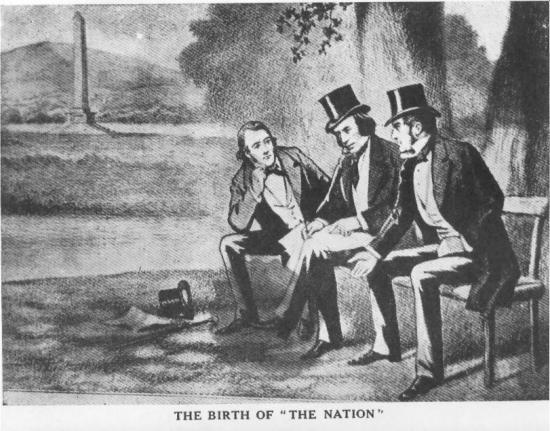
"A Nation Once Again" is a song, written in the early to mid-1840s by Thomas Osborne Davis (1814–1845). Davis was a founder of Young Ireland, an Irish movement whose aim was the independence of Ireland.
Davis believed that songs could have a strong emotional impact on people. He wrote that "a song is worth a thousand harangues". He felt that music could have a particularly strong influence on Irish people at that time. He wrote: "Music is the first faculty of the Irish... we will endeavour to teach the people to sing the songs of their country that they may keep alive in their minds the love of the fatherland."
"A Nation Once Again" was first published in The Nation on 13 July 1844 and quickly became a rallying call for the growing Irish nationalist movement at that time.
The song is a prime example of the "Irish rebel music" subgenre. The song's narrator dreams of a time when Ireland... (Continues)
When boyhood's fire was in my blood
(Continues)
(Continues)
Contributed by Lucone 2020/12/31 - 01:21
Song Itineraries:
Conflicts in Ireland
Second World Song
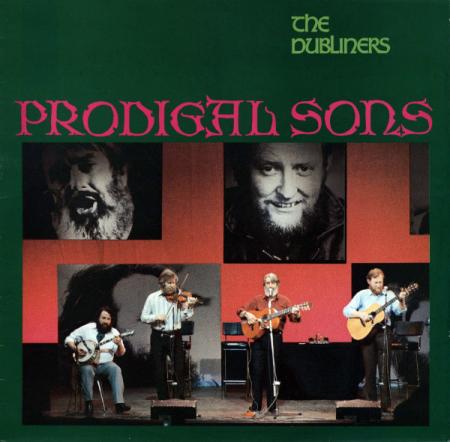
(David McDonagh)
dall'album Prodigal Sons (1983)
dall'album Prodigal Sons (1983)
I was walking down at Dublin Street one morning
(Continues)
(Continues)
2020/12/7 - 18:08
Working Man
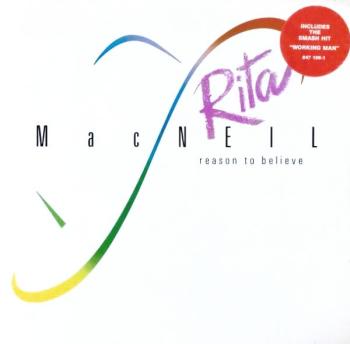
1988
Reason to Believe
Interpretata nel 1996 dai Dubliners
"Working Man" was sparked by a visit to the Princess Colliery in Sydney Mines, prompted by the stories of the miners' daily hardships. In her autobiography she notes that the tour guide was suffering from throat cancer, and she had remembered her mother's struggles with it, and as he talked the melody for the song began in her head, complete with lyrics. The song, which peaked at number 11 in the UK charts, became a worldwide sensation and the unofficial anthem for coal miners everywhere.
Reason to Believe
Interpretata nel 1996 dai Dubliners
"Working Man" was sparked by a visit to the Princess Colliery in Sydney Mines, prompted by the stories of the miners' daily hardships. In her autobiography she notes that the tour guide was suffering from throat cancer, and she had remembered her mother's struggles with it, and as he talked the melody for the song began in her head, complete with lyrics. The song, which peaked at number 11 in the UK charts, became a worldwide sensation and the unofficial anthem for coal miners everywhere.
It's a working man l am
(Continues)
(Continues)
Contributed by Dq82 2019/11/2 - 18:10
Song Itineraries:
The War of Labour: Emigration, Immigration, Exploitation, Slavery
Mrs. McGrath
Anonymous

L'origine è irlandese e il periodo "La guerra dei Trent'anni". Della stessa epoca ne esistono versioni in Inghilterra mentre quelle americane sono successive e, ad ogni modo, erano conosciute solamente all'interno delle comunità irlandesi. Il Folk Revival americano l'ha riscoperta attorno al 1950 ed è diventata immediatamente e ovviamente un efficace inno di protesta contro ogni tipo di guerra. In Irlanda i primi ad interpretarla furono Peg (e Bob) Clangy, Robin Roberts e i Dubliners, in Inghilterra Pete Castle e Timothy Walsh, negli USA Ed McCurdy, Burl Ives, Pete Seeger in studio e anche dal vivo con Big Bill Broonzy. Io, la prima volta che l'ho ascoltata fu dalla, ancora a tutt'oggi, emozionanti voci del povero Tim Hart e della sua allora compagna Maddy Prior.
Flavio Poltronieri 2019/10/15 - 15:42
What We Tell the Children
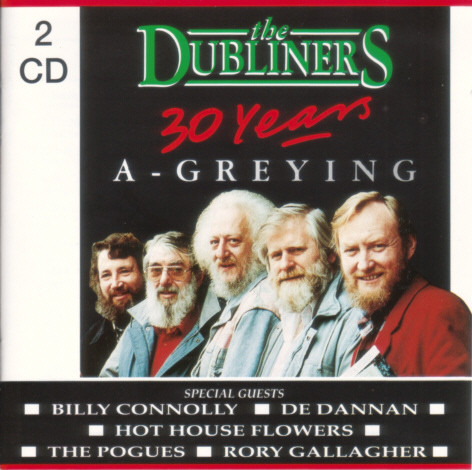
Scritta, credo, da Ronnie Drew, pubblicata la prima volta nel 1992 nell'album "30 Years A-Greying"
Un richiamo alla responsabilità di fronte ai rischi di distruzione del pianeta
Un richiamo alla responsabilità di fronte ai rischi di distruzione del pianeta
Which way will the branch bend
(Continues)
(Continues)
Contributed by piersante Sestini 2019/2/17 - 23:00
The Old Orange Flute
Anonymous
The Old Orange Flute è una canzone popolare irlandese, presumibilmente nata in ambienti unionisti alla fine del XIX secolo; secondo la versione inglese di Wikipedia la prima testimonianza scritta del testo risale al 1907.
L'autore del testo non sarebbe comunque identificabile con certezza.
Prima della guerra civile nell'Ulster, alla fine degli anni Sesssanta del XX secolo, i toni leggeri della canzone l'avevano resa popolare anche nel campo opposto; ne fanno fede le versioni dei Clancy Brothers e dei Dubliners.
L'autore del testo non sarebbe comunque identificabile con certezza.
Prima della guerra civile nell'Ulster, alla fine degli anni Sesssanta del XX secolo, i toni leggeri della canzone l'avevano resa popolare anche nel campo opposto; ne fanno fede le versioni dei Clancy Brothers e dei Dubliners.
In the County Tyrone, near the town of Dungannon
(Continues)
(Continues)
Contributed by Io non sto con Oriana 2018/11/10 - 19:15
Song Itineraries:
Conflicts in Ireland
Black Velvet Band
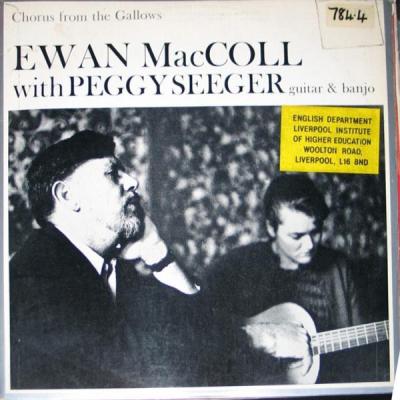
[19° secolo]
Una ballata irlandese ottocentesca che Ewan MacColl imparò da Harry Cox negli anni 50
Poi nei suoi album "Bad Lads and Hard Cases - British Ballads of Crime and Criminals" (1957) e "Chorus From the Gallows" (1960), con Peggy Seeger
Una canzone tradizionale esistente in molteplici versioni, di cui la più famosa è forse quella dei Dubliners, risalente al 1967.
Il testo della versione di MacColl – insieme a molte altre – l'ho trovato sull'incommensurabile Mudcat Café
Una canzone che mi ha fatto venire subito in mente la scena dell'incontro tra Amsterdam (Leonardo DiCaprio) e la borseggiatrice Jenny (Cameron Diaz) in "Gangs of New York" di Martin Scorsese (2002), un film in cui, non a caso, la nascita di New York – e dell'America moderna - è descritta come una guerra feroce fra i Nativi, protestanti, e i Conigli Morti, cattolici, immigrati irlandesi.
Una ballata irlandese ottocentesca che Ewan MacColl imparò da Harry Cox negli anni 50
Poi nei suoi album "Bad Lads and Hard Cases - British Ballads of Crime and Criminals" (1957) e "Chorus From the Gallows" (1960), con Peggy Seeger
Una canzone tradizionale esistente in molteplici versioni, di cui la più famosa è forse quella dei Dubliners, risalente al 1967.
Il testo della versione di MacColl – insieme a molte altre – l'ho trovato sull'incommensurabile Mudcat Café
Una canzone che mi ha fatto venire subito in mente la scena dell'incontro tra Amsterdam (Leonardo DiCaprio) e la borseggiatrice Jenny (Cameron Diaz) in "Gangs of New York" di Martin Scorsese (2002), un film in cui, non a caso, la nascita di New York – e dell'America moderna - è descritta come una guerra feroce fra i Nativi, protestanti, e i Conigli Morti, cattolici, immigrati irlandesi.
In a neat little town they call Belfast
(Continues)
(Continues)
Contributed by Bernart Bartleby 2018/3/20 - 21:45
Schooldays Over, Come on Then John
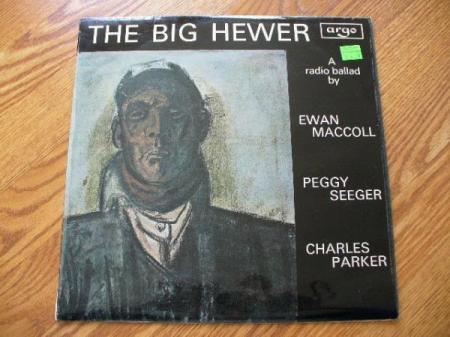
[1960]
Parole di Ewan MacColl
Musica di Ewan MacColl e Peggy Seeger
In "The Big Hewer - A Radio Ballad About Britain's Coal Miners", trasmissione radiofonica in onda nel 1960 sulla BBC Radio, prodotta da Charles Parker (1919-1980), scrittore, cantante ed attore teatrale. Il disco è del 1967, poi riedito nel 1999.
Si tratta della quarta di otto emissioni curate da MacColl e dalla Seeger tra il 1957 ed il 1964.
La coppia si avvalse della collaborazione di artisti prestigiosi, come Dave Swarbrick, A. L. Lloyd, Ian Campbell, Isla Cameron e Louis Killen.
Interpreta da molti, tra cui i Dubliners, i Chieftains, Dick Gaughan, Damien Dempsey, i Clancy Brothers,...
Pitman e collier sono entrambi sinonimi di miner, tre modi diversi che l'inglese ha per indicare il minatore del carbone...
Parole di Ewan MacColl
Musica di Ewan MacColl e Peggy Seeger
In "The Big Hewer - A Radio Ballad About Britain's Coal Miners", trasmissione radiofonica in onda nel 1960 sulla BBC Radio, prodotta da Charles Parker (1919-1980), scrittore, cantante ed attore teatrale. Il disco è del 1967, poi riedito nel 1999.
Si tratta della quarta di otto emissioni curate da MacColl e dalla Seeger tra il 1957 ed il 1964.
La coppia si avvalse della collaborazione di artisti prestigiosi, come Dave Swarbrick, A. L. Lloyd, Ian Campbell, Isla Cameron e Louis Killen.
Interpreta da molti, tra cui i Dubliners, i Chieftains, Dick Gaughan, Damien Dempsey, i Clancy Brothers,...
Pitman e collier sono entrambi sinonimi di miner, tre modi diversi che l'inglese ha per indicare il minatore del carbone...
Schooldays over, come on then John
(Continues)
(Continues)
Contributed by Bernart Bartleby 2018/1/29 - 21:42
Song Itineraries:
Child Abuse, The War of Labour: Emigration, Immigration, Exploitation, Slavery
McCafferty
Anonymous

[XIX° secolo]
Una canzone irlandese molto nota – con i titoli di McCafferty, o McCaffery o McKaffery - che trovo nel repertorio di artisti come Dominic Behan, The Spinners, Roy Harris, ma soprattutto Ewan MacColl e The Dubliners
Sulla melodia de The Croppy Boy
Il testo che propongo – quello della versione dei Dubliners – racconta la storia vera di Patrick McCaffery, nato nel 1842 nella contea irlandese di Kildare. Orfano di madre, abbandonato dal padre, Patrick ebbe un'infanzia difficilissima, con il corollario dell'allora inevitabile lavoro precoce in una fabbrica. A 18 anni si arruolò ma, forse per il suo carattere riottoso e insubordinato, forse soltanto perchè irlandese, fu subito accolto male dai suoi diretti superiori. La canzone racconta che gli bastò esitare a compiere l'ordine di identificare dei bambini, figli di militari, che facevano chiasso perchè Patrick McCaffery fosse condannato... (Continues)
Una canzone irlandese molto nota – con i titoli di McCafferty, o McCaffery o McKaffery - che trovo nel repertorio di artisti come Dominic Behan, The Spinners, Roy Harris, ma soprattutto Ewan MacColl e The Dubliners
Sulla melodia de The Croppy Boy
Il testo che propongo – quello della versione dei Dubliners – racconta la storia vera di Patrick McCaffery, nato nel 1842 nella contea irlandese di Kildare. Orfano di madre, abbandonato dal padre, Patrick ebbe un'infanzia difficilissima, con il corollario dell'allora inevitabile lavoro precoce in una fabbrica. A 18 anni si arruolò ma, forse per il suo carattere riottoso e insubordinato, forse soltanto perchè irlandese, fu subito accolto male dai suoi diretti superiori. La canzone racconta che gli bastò esitare a compiere l'ordine di identificare dei bambini, figli di militari, che facevano chiasso perchè Patrick McCaffery fosse condannato... (Continues)
When I was eighteen years of age
(Continues)
(Continues)
Contributed by Bernart Bartleby 2018/1/3 - 13:41
Avondale
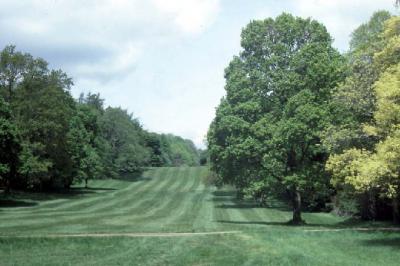
La canzone è stata scritta da Dominic Behan e dedicata a Charles Stewart Parnell (si veda The Blackbird of Sweet Avondale). La melodia è un’aria tradizionale dal titolo “The Orange Maid of Sligo”.
Tra gli interpreti: Christy Moore, The Dubliners
IL GIARDINO D’IRLANDA
Avondale è una tranquilla città a Wicklow, contea eletta a “giardino d’Irlanda” per i suoi paesaggi; si trova proprio a Sud di Dublino e ne costituisce il polmone verde, un incantato paradiso naturale dominato per la maggior parte dalle Wicklow Mountains, luoghi favoriti dagli amanti dell’escursionismo!!
Ad Avondale si trova la casa natale di Charles Stewart Parnell, una villa georgiana ora sede di un museo a lui dedicato.
Tra gli interpreti: Christy Moore, The Dubliners
IL GIARDINO D’IRLANDA
Avondale è una tranquilla città a Wicklow, contea eletta a “giardino d’Irlanda” per i suoi paesaggi; si trova proprio a Sud di Dublino e ne costituisce il polmone verde, un incantato paradiso naturale dominato per la maggior parte dalle Wicklow Mountains, luoghi favoriti dagli amanti dell’escursionismo!!
Ad Avondale si trova la casa natale di Charles Stewart Parnell, una villa georgiana ora sede di un museo a lui dedicato.
Oh, have you been to Avondale
(Continues)
(Continues)
Contributed by Cattia Salto 2016/8/19 - 20:37
Song Itineraries:
Conflicts in Ireland
Patriot Game

“The Patriot Game” è una irish rebel song scritta da Dominic Behan e dedicata a Fergal O’Hanlon un giovanissimo soldato dell’IRA morto durante l’operazione militare -o l’attacco terroristico per altri- (lui e i suoi compagni cercarono di far saltare con le bombe una caserma della Royal Ulster Constabulary nel villaggio di Brookeborough – contea Fermanang) nella notte di inizio del nuovo 1957. I “martiri” di quella notte furono in realtà due, ma più che commemorare l’azione militare in sè, Behan voleva riportare sulla bocca di tutti la questione irlandese e mettersi dal punto di vista dei combattenti dell’IRA che avevano continuato la loro lotta dopo il Trattato del 1921.
(tratto da Terre Celtiche)
(tratto da Terre Celtiche)
IL GIOCO DEL POTERE
(Continues)
(Continues)
Contributed by Cattia Salto 2016/2/23 - 09:30
The Convict of Clonmel
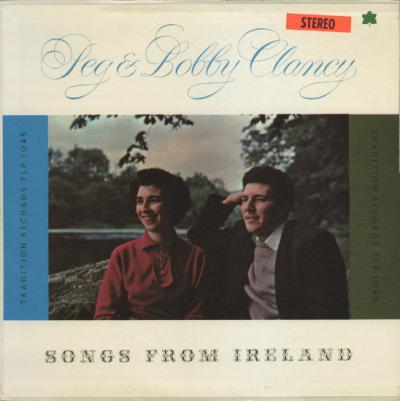
[1820s]
Nota anche con il titolo de “The Gaol of Cluain Meala”.
Versi del poeta di Cork Jeremiah Joseph Callanan (1795–1829).
Interpretata e incisa da moltissimi musicisti irlandesi, da Luke Kelly coi Dubliners a Tommy Sands con la Sands Family ai Dublin City Ramblers.
La “príosún Chluain Meala” (Clonmel, contea Tipperary) ha visto passare molti irriducibili irlandesi, dai Whiteboys, che nel 700 lottavano contro i latifondisti ed i loro abusi, ai Young Irelanders, precursori del repubblicanismo novecentesco…
Nota anche con il titolo de “The Gaol of Cluain Meala”.
Versi del poeta di Cork Jeremiah Joseph Callanan (1795–1829).
Interpretata e incisa da moltissimi musicisti irlandesi, da Luke Kelly coi Dubliners a Tommy Sands con la Sands Family ai Dublin City Ramblers.
La “príosún Chluain Meala” (Clonmel, contea Tipperary) ha visto passare molti irriducibili irlandesi, dai Whiteboys, che nel 700 lottavano contro i latifondisti ed i loro abusi, ai Young Irelanders, precursori del repubblicanismo novecentesco…
How hard is my fortune
(Continues)
(Continues)
Contributed by Bernart Bartleby 2014/8/8 - 14:00
Song Itineraries:
Conflicts in Ireland, From World Jails
Poor Paddy on the Railway
Anonymous
This song has been performed by numerous musicians and singers, including Ewan MacColl, Authority Zero, The Dubliners, The Tossers, The Kelly Family and The Pogues.
"Poor Paddy Works on the Railway" is a popular Irish folk and American folk song. Historically, it was often sung as a sea chanty. The song portrays an Irish worker working on a railroad.
There are numerous titles of the song including, "Pat Works on the Railway" and "Paddy on the Railway". "Paddy Works on the Erie" is another version of the song.
In The American Songbag, the writer Carl Sandburg claims that the song has been published in sheet music since the early 1850s. The earliest confirmed date of publication is from 1864 from a manuscript magazine. Ernest Bourne recorded the first version, released in 1941, by Alan Lomax for the Library of Congress in 1938.
"Paddy on the Railway" is attested as a chanty in the earliest... (Continues)
"Poor Paddy Works on the Railway" is a popular Irish folk and American folk song. Historically, it was often sung as a sea chanty. The song portrays an Irish worker working on a railroad.
There are numerous titles of the song including, "Pat Works on the Railway" and "Paddy on the Railway". "Paddy Works on the Erie" is another version of the song.
In The American Songbag, the writer Carl Sandburg claims that the song has been published in sheet music since the early 1850s. The earliest confirmed date of publication is from 1864 from a manuscript magazine. Ernest Bourne recorded the first version, released in 1941, by Alan Lomax for the Library of Congress in 1938.
"Paddy on the Railway" is attested as a chanty in the earliest... (Continues)
In eighteen hundred and forty one
(Continues)
(Continues)
Contributed by DoNQuijote82 2013/12/10 - 12:37
Song Itineraries:
The War of Labour: Emigration, Immigration, Exploitation, Slavery
Many Young Men of Twenty

In the 1960s, a new generation of dramatists made emigration a central theme in their work. John B Keane's musical play, Many Young Men of Twenty, debuted in 1961 with its rousing chorus in the title song – "many young men of twenty said goodbye"– becoming an Irish hit for the Dubliners. The group articulated the often brutal urban experience of Irishmen abroad in songs such as McAlpine's Fusiliers and Poor Paddy on the Railway, both about Irish labourers in England.
Many young men of twenty said goodbye
(Continues)
(Continues)
Contributed by donquijote82 2013/12/9 - 22:39
Song Itineraries:
The War of Labour: Emigration, Immigration, Exploitation, Slavery
Dirty Old Town
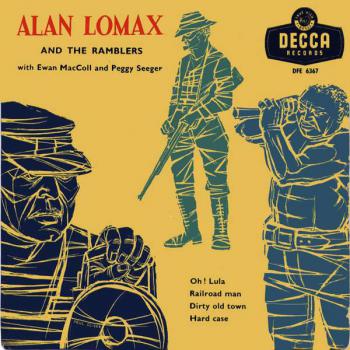
[1949]
Parole e musica di Ewan MacColl
La prima incisione risale ad un EP del 1956 con Alan Lomax and the Ramblers e Peggy Seeger.
Una delle più famose canzoni di Ewan MacColl, seconda forse soltanto a “The First Time Ever I Saw Your Face” e come questa interpretata da tantissimi artisti, dai Dubliners ai Pogues, da Rod Stewart agli Specials …
Una canzone d’amore e di protesta con sullo sfondo le ciminiere di Salford, città natale di MacColl, cuore della rivoluzione industriale inglese e poi emblema del suo declino a partire dai primi decenni del 900…
Propongo questa bellissima canzone perché in pochi e semplici versi descrive, a mio parere, benissimo la violenza che la società industriale ed i suoi agglomerati urbani hanno esercitato e continuano ad esercitare contro l’uomo ed i suoi sentimenti, contro la natura… Chissà se verrà mai il giorno in cui l’essere umano deciderà,... (Continues)
Parole e musica di Ewan MacColl
La prima incisione risale ad un EP del 1956 con Alan Lomax and the Ramblers e Peggy Seeger.
Una delle più famose canzoni di Ewan MacColl, seconda forse soltanto a “The First Time Ever I Saw Your Face” e come questa interpretata da tantissimi artisti, dai Dubliners ai Pogues, da Rod Stewart agli Specials …
Una canzone d’amore e di protesta con sullo sfondo le ciminiere di Salford, città natale di MacColl, cuore della rivoluzione industriale inglese e poi emblema del suo declino a partire dai primi decenni del 900…
Propongo questa bellissima canzone perché in pochi e semplici versi descrive, a mio parere, benissimo la violenza che la società industriale ed i suoi agglomerati urbani hanno esercitato e continuano ad esercitare contro l’uomo ed i suoi sentimenti, contro la natura… Chissà se verrà mai il giorno in cui l’essere umano deciderà,... (Continues)
I found my love 'neath the gasworks croft falls
(Continues)
(Continues)
Contributed by Bernart 2013/7/25 - 11:22
Song Itineraries:
The War of Labour: Emigration, Immigration, Exploitation, Slavery, War on Earth
Wrap the Green Flag Round Me
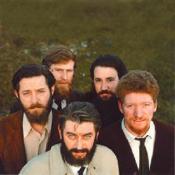
Wrap the green flag round me, boys,
(Continues)
(Continues)
Contributed by DonQuijote82 2011/12/29 - 12:06
For What Died the Sons of Róisín
testo di Luke Kelly
For What Died the Sons of Róisín, was it fame?
(Continues)
(Continues)
Contributed by DonQuijote82 2011/12/29 - 11:58
McAlpine's Fusiliers

[anni 50]
Nel live album “Finnegan Wakes” del 1966.
Attribuita a Dominic Behan ma in realtà probabilmente scritta anni prima da tal Martin Henry di Rooskey, nella contea irlandese di Roscommon.
Vi si raccontano le difficili condizioni di lavoro degli irlandesi immigrati in Inghilterra e impiegati come mano d’opera a basso costo nei cantieri della famosa ditta di costruzioni Sir Robert McAlpine Ltd, oggi una delle più grandi compagnie mondiali nel settore della progettazione e costruzione di grandi opere specialmente nel settore industriale, energetico e della difesa.
Sir Robert McAlpine, detto “Concrete Bob”, fondò la sua azienda nel 1869 e questa, soprattutto a partire dagli anni 30, divenne un colosso economico fondato sul sudore e sul sangue degli immigrati irlandesi sfruttati e mal pagati.
Nel live album “Finnegan Wakes” del 1966.
Attribuita a Dominic Behan ma in realtà probabilmente scritta anni prima da tal Martin Henry di Rooskey, nella contea irlandese di Roscommon.
Vi si raccontano le difficili condizioni di lavoro degli irlandesi immigrati in Inghilterra e impiegati come mano d’opera a basso costo nei cantieri della famosa ditta di costruzioni Sir Robert McAlpine Ltd, oggi una delle più grandi compagnie mondiali nel settore della progettazione e costruzione di grandi opere specialmente nel settore industriale, energetico e della difesa.
Sir Robert McAlpine, detto “Concrete Bob”, fondò la sua azienda nel 1869 e questa, soprattutto a partire dagli anni 30, divenne un colosso economico fondato sul sudore e sul sangue degli immigrati irlandesi sfruttati e mal pagati.
As down the glen came McAlpine's Men,
(Continues)
(Continues)
Contributed by Bartleby 2011/5/12 - 10:06
Song Itineraries:
The War of Labour: Emigration, Immigration, Exploitation, Slavery
The Fields of Athenry
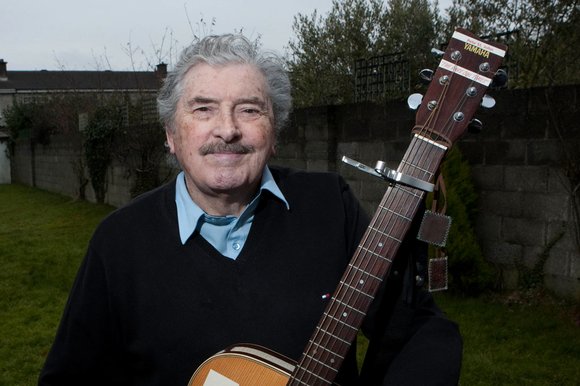
The Fields of Athenry is probably the best-known song about the Great Famine which raged over Ireland from 1845 until 1849.
The main character is awaiting transportation to the penal colony Botany Bay for stealing corn from a food depot. Whilst imprisoned his thoughts wander off to the abandoned fields of Athenry, a village just east of Galway Town.
Charles Trevelyan, the Permanent Secretary at the Treasury during most of the Famine years, was reluctant to hand out his corn and when the corn depots opened they mainly contained maize, or Indian corn. Due to its hard kernel the Irish were unable to process the maize.
When The Fields of Athenry was published in 1979 by Pete St. John the rumour was spread that the words already had been published in the 1880's. Evidence supporting this rumour however is never produced and St. John's claim is widely acknowledged.
Once published Paddy Reilly... (Continues)
The main character is awaiting transportation to the penal colony Botany Bay for stealing corn from a food depot. Whilst imprisoned his thoughts wander off to the abandoned fields of Athenry, a village just east of Galway Town.
Charles Trevelyan, the Permanent Secretary at the Treasury during most of the Famine years, was reluctant to hand out his corn and when the corn depots opened they mainly contained maize, or Indian corn. Due to its hard kernel the Irish were unable to process the maize.
When The Fields of Athenry was published in 1979 by Pete St. John the rumour was spread that the words already had been published in the 1880's. Evidence supporting this rumour however is never produced and St. John's claim is widely acknowledged.
Once published Paddy Reilly... (Continues)
By the lonely prison wall.
(Continues)
(Continues)
Contributed by DonQuijote82 2011/4/8 - 11:48
Song Itineraries:
Conflicts in Ireland
Alabama 58
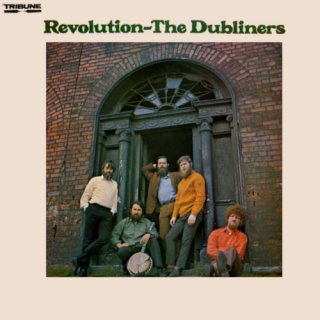
[1970]
Album “Revolution”
Scritta da Ewan MacColl ma, vista la sua discografia sterminata, ignoro se lui stesso l’abbia incisa prima dei Dubliners
Album “Revolution”
Scritta da Ewan MacColl ma, vista la sua discografia sterminata, ignoro se lui stesso l’abbia incisa prima dei Dubliners
In Alabama 1958
(Continues)
(Continues)
Contributed by Bartleby 2010/10/26 - 09:01
Whiskey In The Jar
Anonymous
Questo tradizionale irlandese viene inserito per l'ultima strofa della versione dei Thin Lizzy, poi ripresa anche dai Metallica:
Ora ad alcuni uomini piace pescare ed ad altri andare a caccia di uccelli
Ed ad alcuni uomini piace sentire, sentire il cannone sparare con fragore
Io amo dormire, specialmente nella camera della Mia Molly
Ma qui sono in prigione, sono qui son con una palla (al piede) e una catena che mi lega sì
Whiskey in the Jar è una canzone tradizionale irlandese che parla di un bandito (solitamente dei monti di Cork e Kerry) tradito dalla propria moglie o dalla propria amante. È una delle canzoni tradizionali irlandesi più eseguite ed è stata incisa da artisti come i The Dubliners, The Pogues, Peter, Paul and Mary, The Highwaymen, Roger Whittaker, the Clancy Brothers e Tommy Makem, The Irish Rovers, Poxy Boggards, The Limeliters, King Creosote, The Shatilla Shakers e... (Continues)
Ora ad alcuni uomini piace pescare ed ad altri andare a caccia di uccelli
Ed ad alcuni uomini piace sentire, sentire il cannone sparare con fragore
Io amo dormire, specialmente nella camera della Mia Molly
Ma qui sono in prigione, sono qui son con una palla (al piede) e una catena che mi lega sì
Whiskey in the Jar è una canzone tradizionale irlandese che parla di un bandito (solitamente dei monti di Cork e Kerry) tradito dalla propria moglie o dalla propria amante. È una delle canzoni tradizionali irlandesi più eseguite ed è stata incisa da artisti come i The Dubliners, The Pogues, Peter, Paul and Mary, The Highwaymen, Roger Whittaker, the Clancy Brothers e Tommy Makem, The Irish Rovers, Poxy Boggards, The Limeliters, King Creosote, The Shatilla Shakers e... (Continues)
As I was going over the far famed Kerry mountains
(Continues)
(Continues)
Contributed by DonQuijote82 2010/10/22 - 19:40
Skibbereen
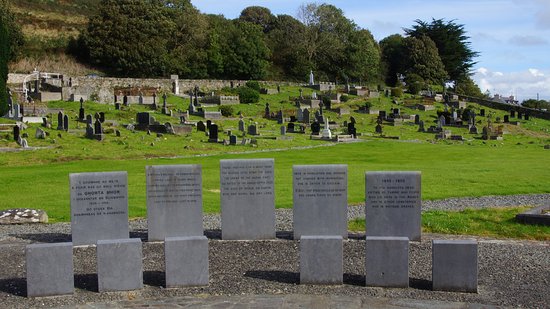
[1850 ca]
Album “Rifles of the I.R.A.” (1969).
Canzone attribuita a tal Patrick Carpenter, poeta e nativo di An Sciobairín (Skibbereen), città nella contea di Cork in Irlanda.
Un figlio chiede al padre, immigrato in America dall’Irlanda, di spiegargli perché ha abbandonato la sua bella terra natale. La carestia, la fame, l’affitto e le tasse imposte dai padroni inglesi, le loro angherie e violenze, la morte per stenti della moglie, tutto questo ha spinto quell’uomo prima alla resistenza contro i landlords e i loro scherani e poi all’emigrazione. Ma il figlio tornerà in Irlanda per riprendere la lotta contro gli inglesi che li affamarono, uccisero, scacciarono…
Nel cimitero di Skibbereen ci sono circa 10.000 tombe dove riposano gli abitanti che tra il 1845 e il 1852 morirono di fame nel corso della “Gorta Mór”, la “Grande Fame”.
Se la carestia fu causata da un parassita infestante che... (Continues)
Album “Rifles of the I.R.A.” (1969).
Canzone attribuita a tal Patrick Carpenter, poeta e nativo di An Sciobairín (Skibbereen), città nella contea di Cork in Irlanda.
Un figlio chiede al padre, immigrato in America dall’Irlanda, di spiegargli perché ha abbandonato la sua bella terra natale. La carestia, la fame, l’affitto e le tasse imposte dai padroni inglesi, le loro angherie e violenze, la morte per stenti della moglie, tutto questo ha spinto quell’uomo prima alla resistenza contro i landlords e i loro scherani e poi all’emigrazione. Ma il figlio tornerà in Irlanda per riprendere la lotta contro gli inglesi che li affamarono, uccisero, scacciarono…
Nel cimitero di Skibbereen ci sono circa 10.000 tombe dove riposano gli abitanti che tra il 1845 e il 1852 morirono di fame nel corso della “Gorta Mór”, la “Grande Fame”.
Se la carestia fu causata da un parassita infestante che... (Continues)
O, father dear I often hear you speak of Erin's Isle
(Continues)
(Continues)
Contributed by Bartleby 2010/10/21 - 11:27
Sergeant, Where's Mine?
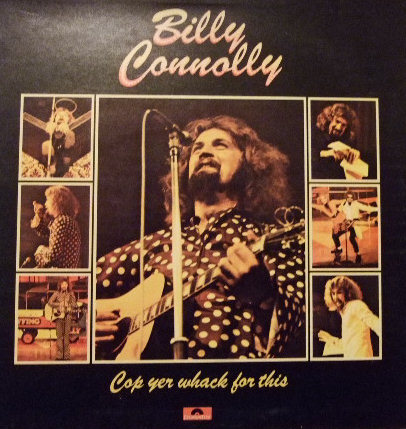
[1974]
Album “Cop Yer Whack for This”
"I'm Asking You Sergeant, Where's Mine" (also known by the shorter title "Sergeant, Where's Mine") is a folk song written and first performed in the mid-1970s by Scottish comedian, actor and singer Billy Connolly. It was later popularized by The Dubliners. Inspired by The Troubles in Northern Ireland, it is told from the point of view of a wounded soldier and makes ironic reference to British Army recruitment advertisements of the era that showed recruits having a grand time in exotic places and enjoying such activities as skiing. (en.wikipedia)
Album “Cop Yer Whack for This”
"I'm Asking You Sergeant, Where's Mine" (also known by the shorter title "Sergeant, Where's Mine") is a folk song written and first performed in the mid-1970s by Scottish comedian, actor and singer Billy Connolly. It was later popularized by The Dubliners. Inspired by The Troubles in Northern Ireland, it is told from the point of view of a wounded soldier and makes ironic reference to British Army recruitment advertisements of the era that showed recruits having a grand time in exotic places and enjoying such activities as skiing. (en.wikipedia)
I'm lying in bed, I'm in room twenty-six
(Continues)
(Continues)
Contributed by The Lone Ranger 2010/5/13 - 09:35
Song Itineraries:
Conflicts in Ireland
Príosún Cluain Meala
Anonymous
[seconda metà del 1700]
Testo trovato qui
L’originale settecentesco, di autore anonimo, fu ripreso da Pádraig Pearse (1879-1916), scrittore e poeta irlandese, noto per essere stato uno dei leader dell’insurrezione repubblicana della Pasqua del 1916, nel corso della quale trovò la morte. La versione inglese fu invece scritta circa un secolo prima da Jeremiah Joseph Callanan (1795–1829), poeta irlandese originario di Cork.
Cluain Meala (l’attuale città irlandese di Clonmel, nel South Tipperary) significa in “gaeilge” – il gaelico irlandese – “prato del miele”, il che evoca le tipiche immagini bucoliche dell’isola verde. Ma nel 1700 i prati e le terre tutte erano di pochi landlords (molti dei quali se ne stavano nelle loro villazze in Inghilterra) e la vita per i contadini, in maggioranza di fede cattolica, non era certo quella di un paradiso dove scorrono latte e miele, per l’appunto… Come... (Continues)
Testo trovato qui
L’originale settecentesco, di autore anonimo, fu ripreso da Pádraig Pearse (1879-1916), scrittore e poeta irlandese, noto per essere stato uno dei leader dell’insurrezione repubblicana della Pasqua del 1916, nel corso della quale trovò la morte. La versione inglese fu invece scritta circa un secolo prima da Jeremiah Joseph Callanan (1795–1829), poeta irlandese originario di Cork.
Cluain Meala (l’attuale città irlandese di Clonmel, nel South Tipperary) significa in “gaeilge” – il gaelico irlandese – “prato del miele”, il che evoca le tipiche immagini bucoliche dell’isola verde. Ma nel 1700 i prati e le terre tutte erano di pochi landlords (molti dei quali se ne stavano nelle loro villazze in Inghilterra) e la vita per i contadini, in maggioranza di fede cattolica, non era certo quella di un paradiso dove scorrono latte e miele, per l’appunto… Come... (Continues)
Ó, bliain is lá amárach
(Continues)
(Continues)
Contributed by The Lone Ranger 2010/5/7 - 13:47
The Auld Triangle
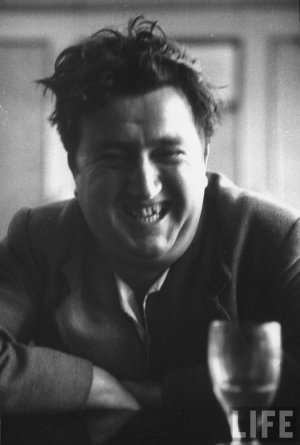
[1954]
Testo / Lyrics / Paroles / Sanat: Richard Patric Shannon, aka Dickie, or Dickey Shannon (1916-1975)
Musica / Music / Musique / Sävel: Dominic Behan
Da / From / Tirée de: Brendan Behan, The Quare Fellow, 1954
Album / Albumi: Brendan Behan Sings Irish Folksongs and Ballads, 1985
Composta da Dominic Behan per l’opera teatrale “The Quare Fellow”, scritta nel 1954 dal fratello Brendan da Richard Patrick Shannon e presentata per la prima volta a Dublino nel 1955. La canzone è inclusa anche nell’LP “Brendan Behan Sings Irish Folksongs and Ballads”, Spoken Arts Records, 1985. I fratelli Dominic e Brendan Behan furono scrittori e drammaturghi ma, soprattutto, militanti repubblicani e socialisti. Il primo fu addirittura uno dei “dodici apostoli” di Michael Collins, eroe della resistenza irlandese contro gli inglesi. Il secondo ebbe un minore rilievo politico ed artistico, ma solo a... (Continues)
Testo / Lyrics / Paroles / Sanat: Richard Patric Shannon, aka Dickie, or Dickey Shannon (1916-1975)
Musica / Music / Musique / Sävel: Dominic Behan
Da / From / Tirée de: Brendan Behan, The Quare Fellow, 1954
Album / Albumi: Brendan Behan Sings Irish Folksongs and Ballads, 1985
Composta da Dominic Behan per l’opera teatrale “The Quare Fellow”, scritta nel 1954 dal fratello Brendan da Richard Patrick Shannon e presentata per la prima volta a Dublino nel 1955. La canzone è inclusa anche nell’LP “Brendan Behan Sings Irish Folksongs and Ballads”, Spoken Arts Records, 1985. I fratelli Dominic e Brendan Behan furono scrittori e drammaturghi ma, soprattutto, militanti repubblicani e socialisti. Il primo fu addirittura uno dei “dodici apostoli” di Michael Collins, eroe della resistenza irlandese contro gli inglesi. Il secondo ebbe un minore rilievo politico ed artistico, ma solo a... (Continues)
Act 1:
(Continues)
(Continues)
Contributed by Alessandro 2010/2/23 - 14:50
Such a Parcel of Rogues in a Nation
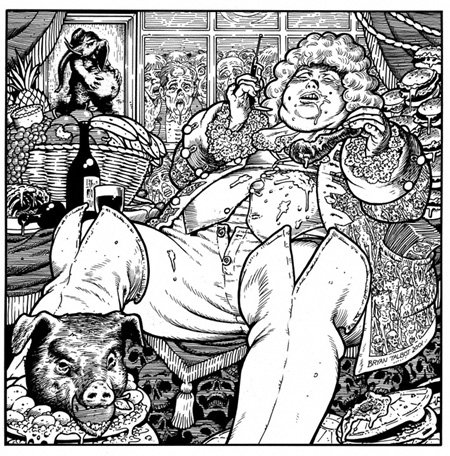
[1791]
Con l’Acts of Union del 1707 i parlamenti di Scozia e di Inghilterra ratificarono il Treaty of Union siglato l’anno precedente. Non più due Stati separati ma uno solo, il Regno Unito di Gran Bretagna.
Il nazionalismo scozzese era definitivamente sconfitto. Vano ormai appariva l’impegno indipendentista ed il sacrificio di antichi guerrieri come Robert the Bruce e William Wallace.
In questa sua canzone Robert Burns gliele cantava per bene ai politici scozzesi che con un tratto di penna avevano cancellato secoli di fiera resistenza contro la corona inglese: “noi, il fiero e indomito popolo scozzese, siamo stati comprati e venduti da un pugno di furfanti avidi soltanto dell’oro inglese!”
La melodia del brano è contenuta nel libro di James Hogg, allievo ed amico di Robert Burns, “The Jacobits Relics of Scotland” (1817), una raccolta di canzoni dedicata alle insurrezioni giacobite... (Continues)
Con l’Acts of Union del 1707 i parlamenti di Scozia e di Inghilterra ratificarono il Treaty of Union siglato l’anno precedente. Non più due Stati separati ma uno solo, il Regno Unito di Gran Bretagna.
Il nazionalismo scozzese era definitivamente sconfitto. Vano ormai appariva l’impegno indipendentista ed il sacrificio di antichi guerrieri come Robert the Bruce e William Wallace.
In questa sua canzone Robert Burns gliele cantava per bene ai politici scozzesi che con un tratto di penna avevano cancellato secoli di fiera resistenza contro la corona inglese: “noi, il fiero e indomito popolo scozzese, siamo stati comprati e venduti da un pugno di furfanti avidi soltanto dell’oro inglese!”
La melodia del brano è contenuta nel libro di James Hogg, allievo ed amico di Robert Burns, “The Jacobits Relics of Scotland” (1817), una raccolta di canzoni dedicata alle insurrezioni giacobite... (Continues)
Fareweel to a' our Scottish fame,
(Continues)
(Continues)
Contributed by Alessandro 2009/9/24 - 08:56
When Margaret Was Eleven
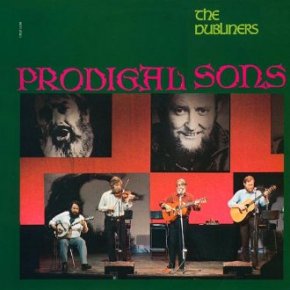
Recorded by The Dubliners in "Prodigal Sons" (1983)
My father said farewell [var. sailed away], and the band played tunes of glory
(Continues)
(Continues)
2009/9/6 - 15:09
Song For Ireland
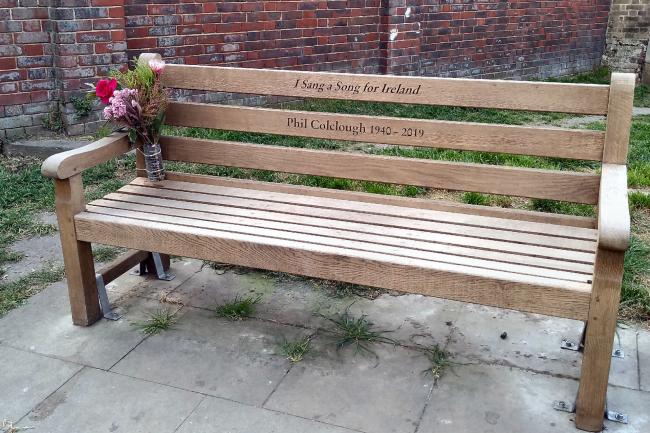
"...Dreaming in the night
I saw a land where no one had to fight..."
I saw a land where no one had to fight..."
"Song for Ireland" was inspired by a trip the Colcloughs took to the Dingle Peninsula. Described as a "modern classic", it has been recorded by numerous artists, including Dick Gaughan, Luke Kelly, Mary Black, Ralph McTell, Celtic Spirit, The Dubliners, Brendan Hayes and Damien Leith.
Walking all the day
(Continues)
(Continues)
Contributed by Alessandro 2009/1/29 - 22:21
Song Itineraries:
Conflicts in Ireland
×
![]()

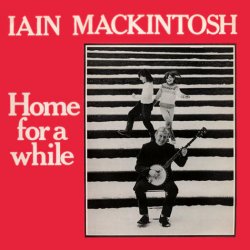
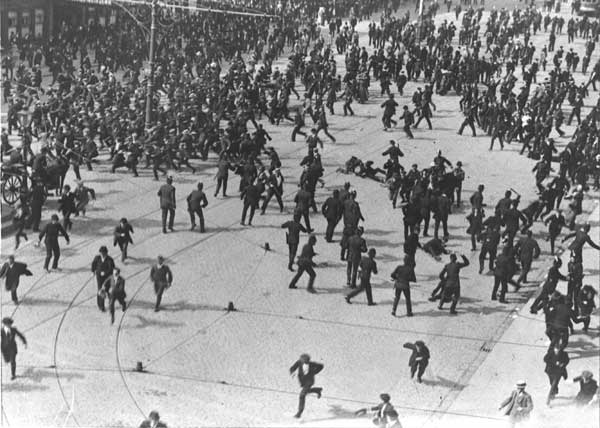
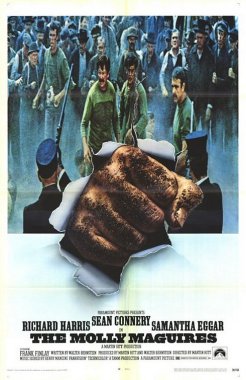
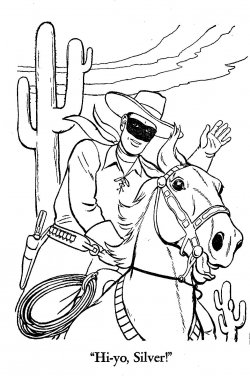

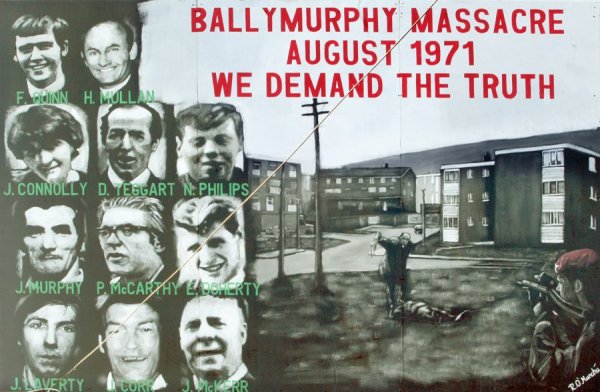
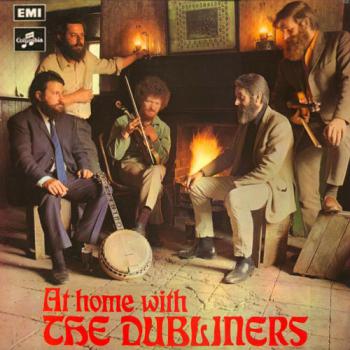
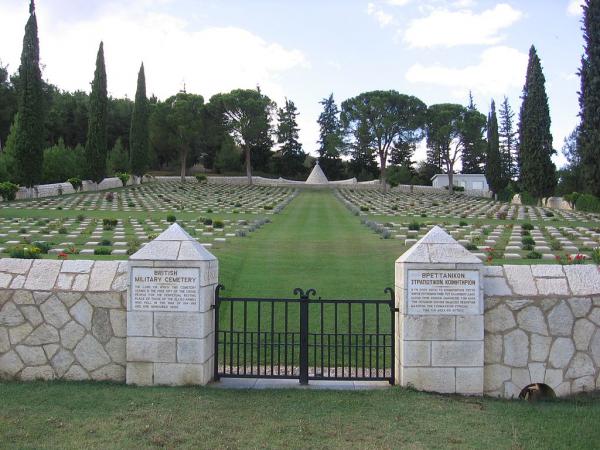
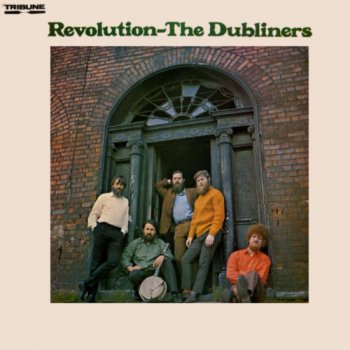
The song was written by brothers Frank & Sean O'Meara
Jim McCann, who often played with The Dubliners had the most success with it, but it was also sang by The Wolfe Tones, John McDermott, Barleycorn, and Anthony Kearns to name but a few singers. And at least also Andrea Rock & the Rebel Poets in their Ep "Mnà" (Women).
It was written about Joseph Plunket and Grace Gifford who married hours before Joseph was executed for his part in the 1916 rising in Dublin
Tom Clarke was a source of inspiration in the Post Office.
There was Joseph Plunket, pale and weak having come directly from the hospital where he had just undergone an operation.Joseph was shot seated, as he was too ill to stand for the firing squad.
He struggled to be with his comrades on that eventful morning. Margaret Skinnider said he looked like death and he met his death a few days later, not a natural one but... (Continues)